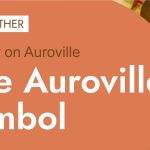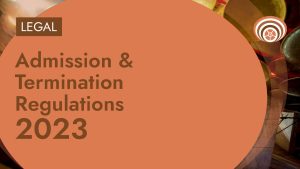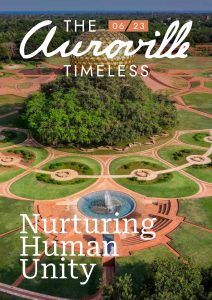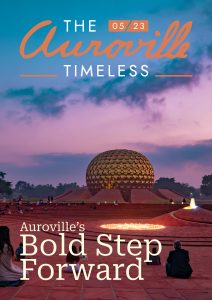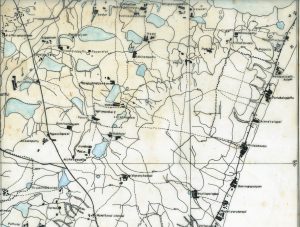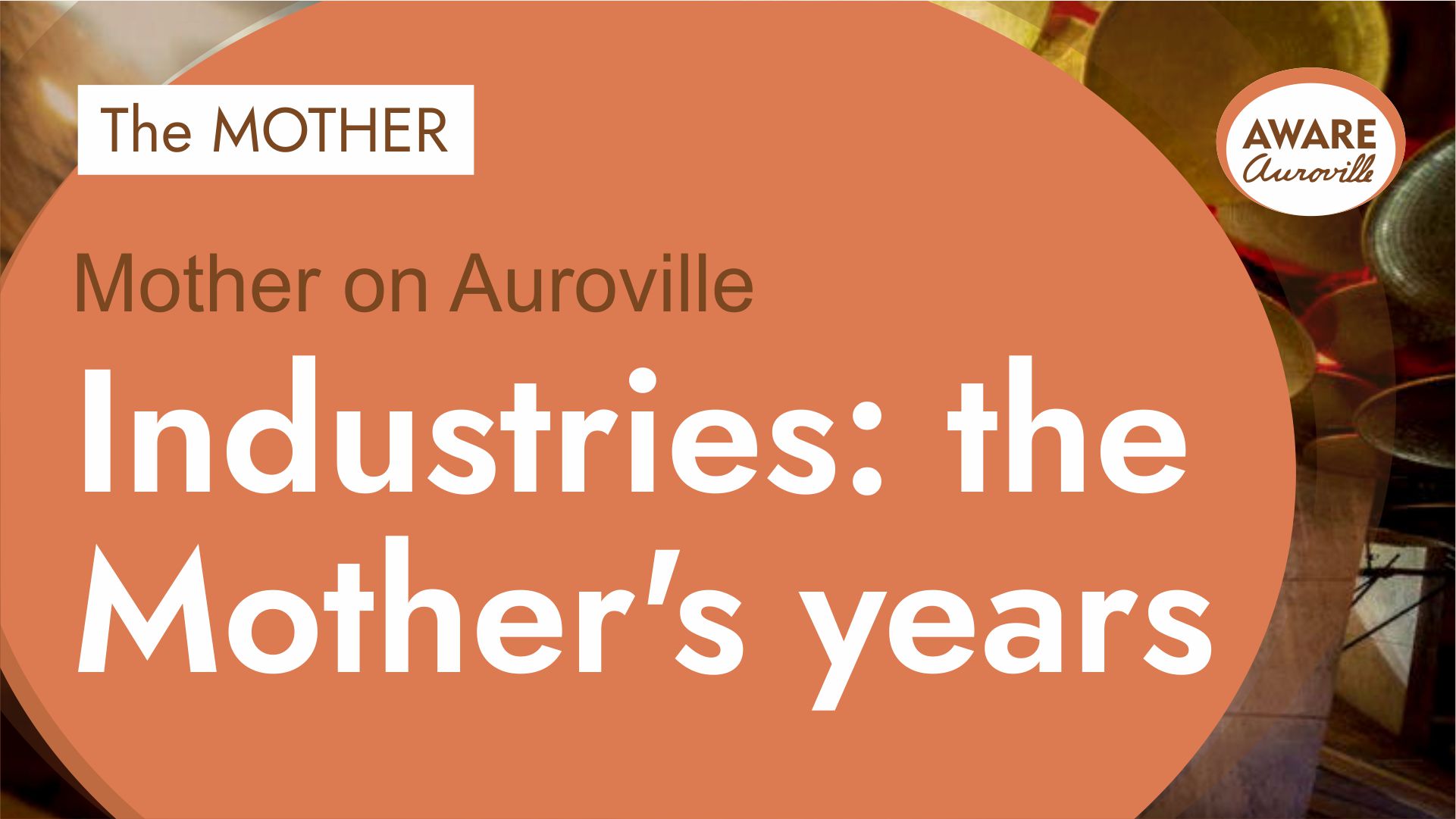
There are many who perceive the necessity of the moral and religious regeneration, who are incline to turn from the prosaic details of politics and commerce and regret that any guide and teacher of the nation should stoop to mingle in them. That is a grievous error. The men who would lead India must be catholic and many-sided. When the Avatar comes, we like to believe that he will be not only the religious guide, but the political leader, the great educationist, the regenerator of society, the captain of co-operative industry, with the soul of the poet, scholar and artist. He will be in short the summary and grand type of the future Indian nation which is rising to reshape and lead the world. [1]
SRI AUROBINDO
INDUSTRIES: THE MOTHER’S YEARS
In an attempt to clarify the widespread misconceptions regarding the place of industries in Auroville I am gathering together, attached, all the material that I am aware of that is available regarding the Mother’s statements, as well as others’ ongoing discussion under her direct guidance. The quotes and introduction, focusing exclusively on industries, are taken from a chapter on Industries, Economic Activities and Agriculture, in my last book on Auroville, The New Being and the New Society. I have added excerpts from the Mother’s letter to the Ford Foundation, accompanying a preliminary master plan (from which I have also taken excerpts), with a request to fund a feasibility study to build the town in five years via a systems engineering approach.
I also attach a file documenting the Mother’s great interest and help in establishing the New Horizon Sugar Mills, a project initiated by the owner, Laljibhai Indocha, whom the Mother had put in charge of the Auroville industrial zone. On the Mother’s instructions Udar Pinto, an aeronautical engineer graduated from London University, and a major Ashram sadhak, assisted by doing all the preparatory groundwork. The Mother’s “right-hand man” for countless Ashram projects, Udar, was given his name by Sri Aurobindo in 1938. Four photographs of the Mother laying the foundation stone for the new mill are also presented. The file continues with Aurofood, a production unit personally financed by Manibhai Patel. The Mother had asked Udar for his assistance on this project as well. The cranes’ miracle, related to off-loading a 6-ton fluting machine and involving the Mother’s occult action, is also recorded.
Paulette
INTRODUCTION
The Mother had boldly stressed the need for industries already in the Thirties, when she first conceived of a town where Sri Aurobindo would have lived at the centre. To understand the magnitude of the Mother’s vision it is essential to introduce her statements about the key role to be played by industries, both in terms of an economically self-sufficient town of 50,000 inhabitants, and as the crucible of the ideal society Auroville is meant to manifest. But first of all, as a preliminary necessity, it was considered essential to raise the capital needed to build the town. The talk given by Suresh Hindocha[2] at the Town Hall, Auroville, on 24 February 2009, broadcast by Auroville Radio and recorded on CD, was a due reminder of the Mother’s practical approach. The excerpt below from the transcript of “Planning of Auroville using Systems Engineering” concerns the discussion, with the Mother’s blessings, that Hindocha, Roger Anger and a few others had with Sidney Firstman in Paris, in November or December 1968. The subject of their discussion was “Planning Research Corporation: Promoting Urban Planning using the Latest Systems Engineering Techniques”. In order to raise the necessary capital, the “Auroville Industrial Corporation” was established as a preliminary move towards the founding of the town of 50,000 inhabitants, which was meant to materialize in five years by adopting systems engineering.
“A lot of discussions took place with a very positive reaction from Dr. Firstman. He felt that it could be possible to complete the whole project within a time frame of about 5 years. He said that it was quite a privilege to be involved in this unique project of Auroville, for his company and himself.
He had a few suggestions for Auroville. It was quite clear that, as soon as a project like Auroville was started, land speculators would move in with a view to make a quick profit. Since an organisation like UNESCO was involved, the Government of India could be approached to declare the land, in and around Auroville, as a special development zone. Land could not be bought except by Auroville, at a fair price, fixed by the Government. This would also protect the local land owners from selling out to land speculators at an unfair lower price.
To finance the project, he proposed setting up Auroville Industrial Corporation, an international entity, perhaps with headquarters at Paris. This corporation would sell bonds, which could be bought by financial institutions or governments. The funds generated by these bonds were to be used to promote profitable high tech industries and to buy land. The profits generated by these industries would initially be used to promote more industries and to buy more land.
There was already a plan, by Auroville planners, for two industrial zones. One would be an external zone for polluting industries and those industries which would donate only a minor part of their profits to Auroville. The internal industrial zone would be for non-polluting industries, which would donate 100% profits to Auroville. The external zone was to be built on land already owned by Auroville on the road towards Vanur/Mailam. An example of such an industry was Aurofoods near that zone.
Of course water would be needed in great quantities for industry. When the Mother was asked about this she asked me to bring a map of the land. She pinpointed a spot on the map with a red marker pen. A test bore-well was drilled at the exact point marked by the Mother. It was a real bonanza as it yielded almost 14,000 gallons per hour.
Once surplus funds were generated, the corporation would redeem or buy back the bonds in stages. Once all the bonds were bought back, the corporation would be dissolved. Then the Mother’s vision of money-less Auroville could be eventually achieved. It was meant to be a temporary tool to get Auroville going.
In fact, Dr. Firstman managed to talk to a financial institution in Paris. They became interested enough and were quite willing to underwrite these bonds. The underwriting was on condition that systems engineering techniques were to be used for planning at Auroville. The bonus for them, I suppose, was the prestige that would be generated by being involved in such a unique international project.”
The Mother’s economic directives and their direct counterpart, minimum needs, to be assured by the Auroville Prosperity ‘in kind’ service, are the conditio sine qua non to even begin evolving in the direction the Mother indicated for life in Auroville. The Mother stressed that all the economic activities (industrial, agricultural, services, crafts etc.) were to be carried out by Aurovilians, without any monetary emolument or profit of any sort. The material needs being provided by the Auroville Prosperity Service, ‘in kind’, established on the principle of minimum needs, “the question of salary does not arise”. Aware that the optimum goal could not be reached all at once, during this transitional period the Mother allowed that specialists and technicians were hired for a wage under an annually renewable contract, as long as they were also made aware of the ideals of Auroville. She also stressed, at the same time, that Aurovilians had to be trained as quickly as possible to do the job.
Ideally, from the beginning, all industries belonged to Auroville and, as long as Auroville did not acquire international status, they were subject to the Indian laws. According to the guidelines approved and signed by the Mother as early as 1969, when Auromodel was being established, “all surplus profit will go to the Central Fund” set up to provide assistance to all developing economic activities. To dispel any doubt about the meaning of this statement, the guidelines stipulated that “those who wish to donate only a part of their profits to the Central Fund, could start their industries anywhere in the world”.
This section gathers the Mother’s statements on industries to be established in Auroville. Documents drafted by others that she approved and conversations on these and other relatable subjects are presented as well. Listed in chronological order, they complement the Mother’s guidelines, where the absence of all private property, along with the absence of monetary transactions, is an essential tenet.
[1] SABCL, Karmayogin, p.214.
[2] Suresh Hindocha, an ex-Ashram student who graduated in engineering at Aberdeen Scotland’s prestigious university, and his father Laljibhai, a successful industrialist, became members of the Administrative Committee of Auroville, which the Mother constituted on March 15, 1970. The father and his son were then put in charge, respectively, of the sections ‘Promotion of Industries’, and ‘Technical Management’. This is the same family that purchased the land needed for the Matrimandir. In a typed transcript of the Mother’s comments Kireet Joshi, at that time the registrar of the Sri Aurobindo Ashram schools, reports that she said about Suresh: “Oh, he is nice, very nice. He is very intelligent, a very good musician, in fact, an artist. He is an occultist also. He is helping Sunil with his music.” Then Kireet asked, “Is it then alright to take him [as a teacher]?” And the Mother replied, “Oh yes, he is alive.” [Comp.]

